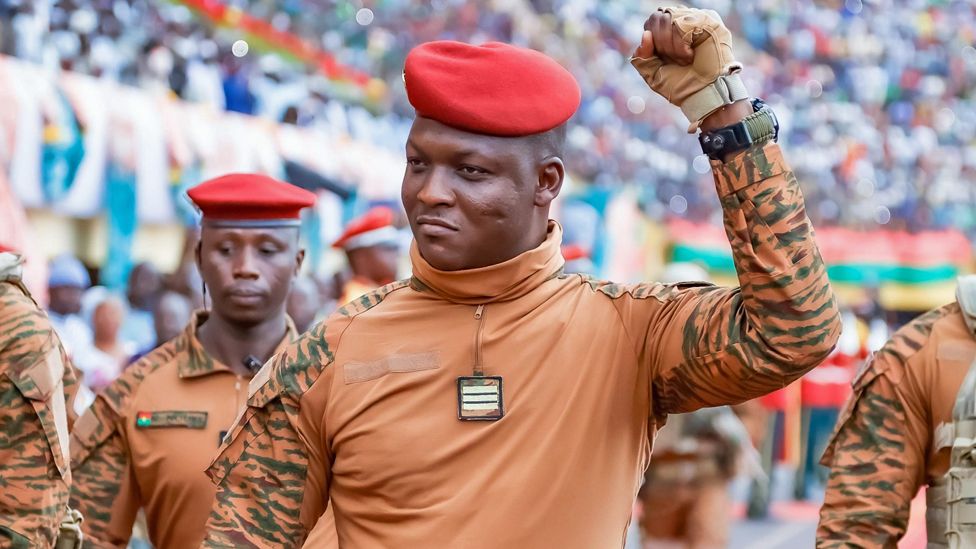The Rise of Capt Ibrahim Traoré: Burkina Faso’s Revolutionary Leader
Ibrahim Traoré, a 37-year-old military ruler, has emerged as a significant figure in Africa’s political landscape, garnering attention for his commitment to pan-African ideals. Since he took power in a coup in 2022, Traoré has adeptly shaped his image as a leader striving to liberate Burkina Faso from what he defines as the constraints of Western imperialism and neo-colonialism.
His dynamic rhetoric and actions have resonated with many across the continent, enabling him to forge a following akin to that of iconic African leaders like Thomas Sankara, often dubbed “Africa’s Che Guevara.” Beverly Ochieng, a senior researcher with Control Risks, noted, “His messages resonate with the current era where many Africans are reevaluating their relationship with the West and confronting persistent poverty despite abundant resources.”
Shift in Alliances and Economic Policies
Following his ascent to power, Traoré’s regime has pivoted from reliance on France, the country’s historical colonial power, to nurturing a close partnership with Russia. This shift includes the controversial deployment of Russian paramilitary forces and aligning economic strategies with leftist principles. A key aspect of his approach involves establishing a state-owned mining entity and mandating that foreign companies share a 15% stake in their local operations in Burkina Faso while ensuring the transfer of skills to the Burkinabé populace.
- Constructing a gold refinery for the first time in the nation’s history.
- Nationalization of previously foreign-owned gold mines and a plan to increase control over other mining operations.
These policies have contributed to tensions with Western firms, such as Sarama Resources, which is currently embroiled in arbitration following the withdrawal of its exploration license.
Popularity and Image Building
In a startling revelation, researcher Enoch Randy Aikins suggested that Traoré might be one of Africa’s most favored leaders at present. His popularity has been fueled by savvy social media campaigns that often exaggerate his revolutionary narrative, including AI-generated musical tributes featuring international icons.
The turning point for Traoré’s visibility came when he addressed the Russia-Africa summit in 2023, urging fellow African leaders to break free from the influence of “imperialists.” This speech was widely publicized by Russian media, enhancing his pan-African image. Such rhetoric continues to attract admiration internationally, including among African-American and Black British communities, as highlighted by Ochieng.
| Year | Event |
|---|---|
| 2022 | Traoré’s coup and rise to power |
| 2023 | Traoré’s speech at the Russia-Africa summit |
| 2024 | Nationalization of gold mines and economic reforms |
Challenges Ahead
Despite rising popularity, Traoré’s administration faces significant challenges, such as the ongoing Islamist insurgency that has escalated tensions and violence in the region. Critics also point to the government’s suppression of dissent and media scrutiny, raising concerns about the future of freedom in the country.
As political currents shift in West Africa, the sentiments surrounding Traoré’s governance reflect a broader disillusionment with conventional democracy, particularly among younger populations. Experts indicate that Traoré’s image as a young, charismatic leader offers hope and a vision of a brighter future for a generation yearning for change.
Conclusion
Capt Ibrahim Traoré’s journey has indeed disrupted the political landscape in Burkina Faso and beyond. His ability to embody the spirit of revolutionary change while accessing new alliances could shape the narrative around authority and governance in Africa for years to come. Nevertheless, only time will reveal whether he can translate popularity into lasting success.


